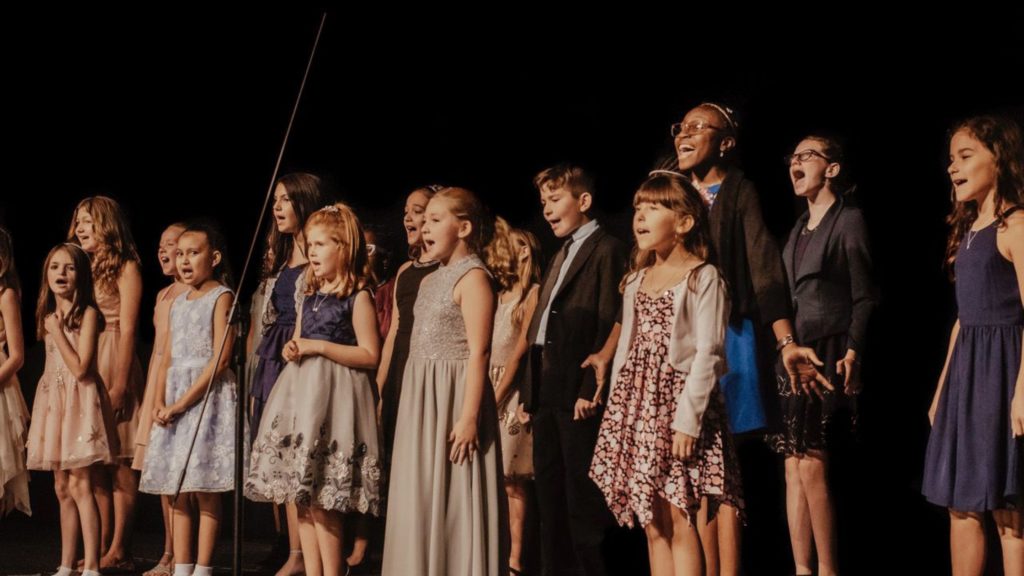The arts are important for young minds as they help develop crucial skills for life. Whether it’s through theater, dance, music, or visual arts, there are various ways to benefit from arts education. It’s important to provide opportunities for arts participation to children, laying a solid foundation of development that will benefit them for the rest of their lives. According to research, encouraging children’s artistic abilities is essential for their development. Here are some of the benefits of being involved in the arts…
Educational Benefits: Strengthening Foundational Skills
Engaging in art activities provides a powerful platform for children to develop and refine various foundational skills. Studies reveal that participation in the arts enhances cognitive abilities, math skills, language acquisition, and fine motor skills. Through the act of creating art, children learn to visually and verbally describe objects, expanding their vocabulary and honing communication skills. Moreover, the physical act of art-making cultivates fine motor skills necessary for everyday tasks like writing, tying shoelaces, cooking, and eating. Drawing, for instance, helps children develop a better understanding of shapes and ratios, fostering spatial awareness and analytical thinking.
Academic Performance: Excelling in the Classroom
Arts education has a positive correlation with academic performance. Schools that incorporate arts programs consistently report higher academic achievement, particularly among students from disadvantaged backgrounds. Notably, arts education enhances focus, cognitive function, and activates the brain’s attention networks critical for effective learning and memory retention. Research from the National Endowment for the Arts highlights how arts training, such as music, dance, or theater, improves a child’s attention system and cognitive abilities. Attention is a fundamental component of learning and memory, and the arts stimulate and develop the same neural networks used in academic pursuits. In fact, music training has been shown to modify brain circuitry and enhance cognitive abilities, with potential benefits extending beyond music-related tasks. By engaging in the arts, children exercise their executive attention network, which is essential for social and academic success.
Psychological Development and Mental Health: Nurturing Well-being
Arts participation profoundly impacts a child’s psychological development and mental well-being. Creating art allows children to express their emotions and gain a deeper understanding of themselves. Whether through painting, music, theater, or dance, artistic activities help children develop emotional intelligence, empathy, and self-awareness. Engaging in art also provides stress relief and encourages self-reflection, allowing children to explore new ideas and find relaxation. Through art, children discover their individuality, nurture curiosity, and develop unique talents. Acquiring artistic skills boosts self-confidence, promotes personal growth, and cultivates resilience when facing challenges. Additionally, analyzing their own artwork and appreciating others’ art fosters self-awareness, empathy, and understanding of others—an essential social skill.
Social Skills and Relationship Building: Collaboration and Connection
Arts education provides an invaluable platform for children to forge connections and develop essential social skills. Participating in the arts or a Kids Theatre Summer Camp facilitates the formation of friendships with like-minded individuals who share a common interest, fostering camaraderie and a sense of belonging—a crucial component of mental health. Collaborative artistic endeavors nurture teamwork skills, which become increasingly vital as children mature. Early exposure to teamwork and collaborative creative goals equips children with invaluable collaboration skills, setting them up for success later in life. At Levoy Theatre, we offer diverse arts programs that emphasize collaboration, allowing children to engage in group activities, ensemble performances, and collective problem-solving. By working together, children learn to respect others’ perspectives, communicate effectively, compromise, and appreciate the value of diverse ideas. These social skills transcend the realm of the arts, empowering children to navigate various social contexts, build strong relationships, and thrive in diverse communities.
Connecting with Loved Ones: Strengthening Bonds through the Arts
Engaging in the arts with children provides a unique opportunity for parents, caregivers, and loved ones to connect on a deeper level. By supporting and participating in a child’s artistic journey, adults create a space for open communication, understanding, and shared experiences. Engaging in artistic activities together strengthens the bond between adults and children, fostering mutual appreciation and respect. Furthermore, active involvement in a child’s artistic pursuits boosts their self-esteem and confidence, reaffirming that their interests are valued and supported.
The arts are essential for children’s overall development—physically, intellectually, and emotionally. By integrating arts education into their lives, we lay the foundation for a future where creativity thrives. As parents and caregivers, embracing the arts nurtures their unique qualities. By unlocking their creative potential, we empower children to navigate life with confidence, resilience, and a lifelong love for artistic expression. Building a strong foundation with the arts starts at the Levoy Theatre, where children are inspired to dream, create, and soar.







